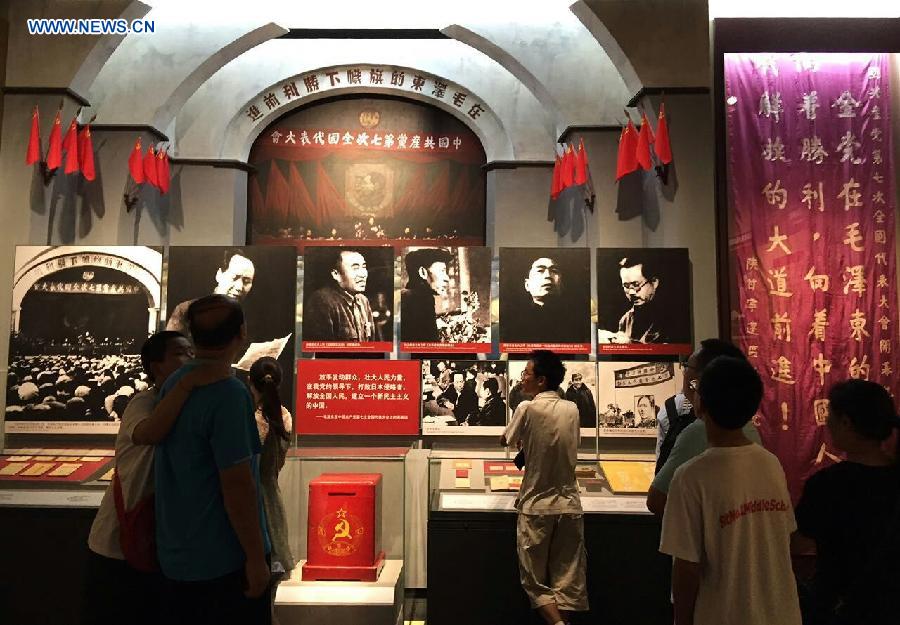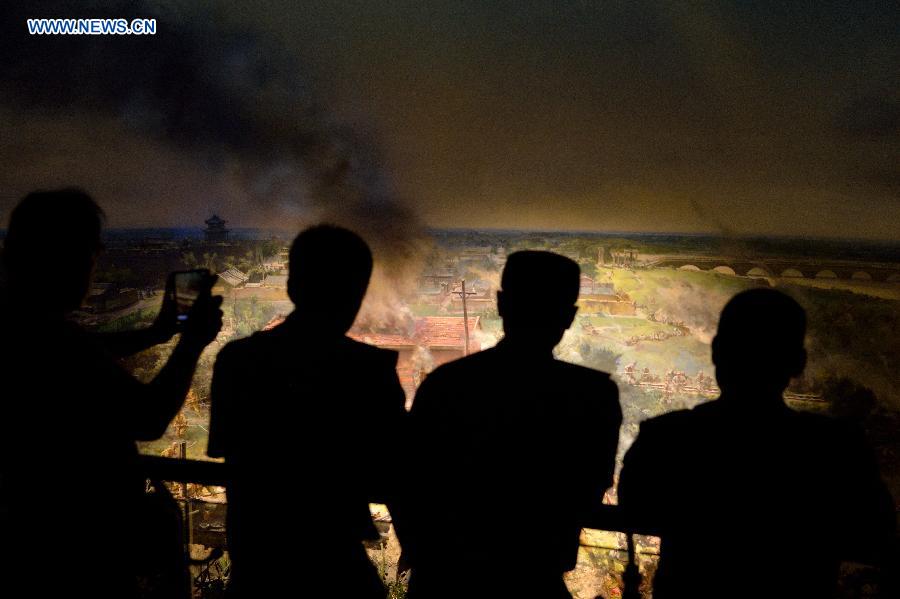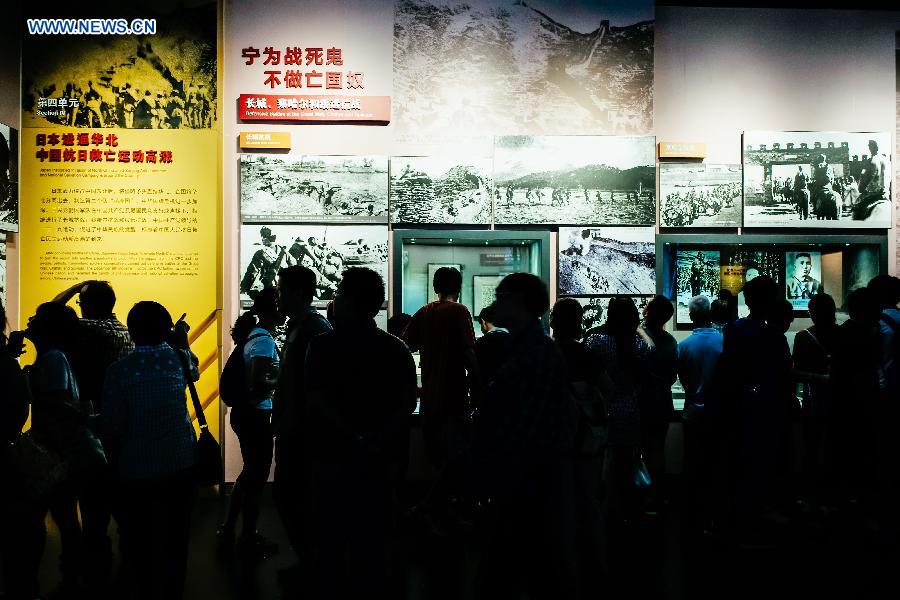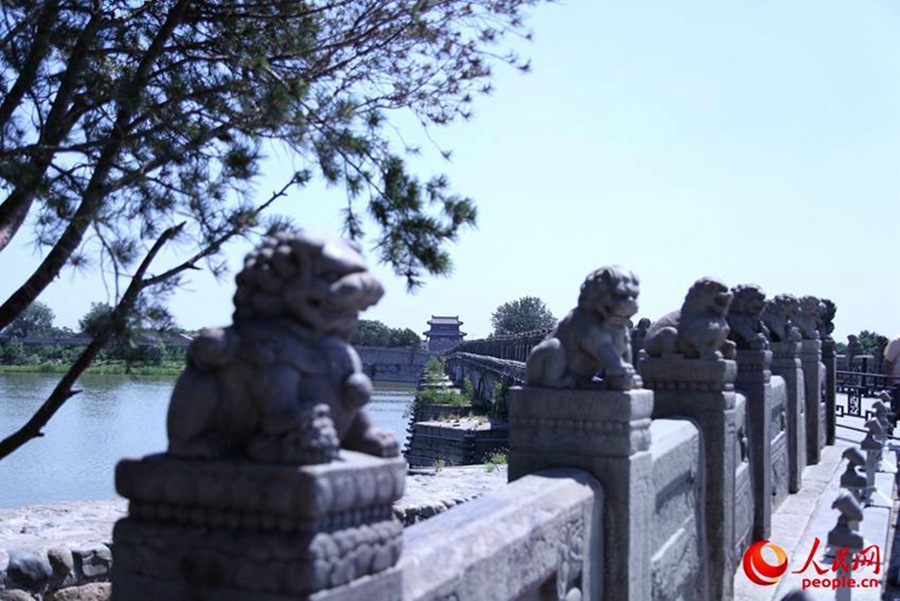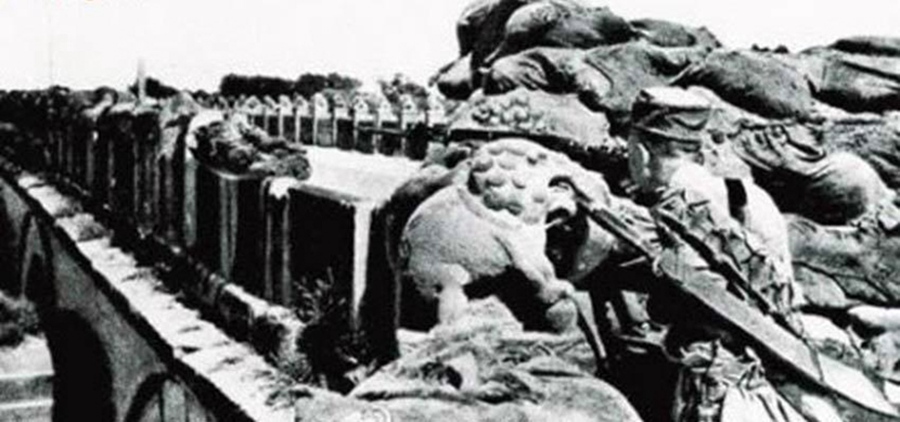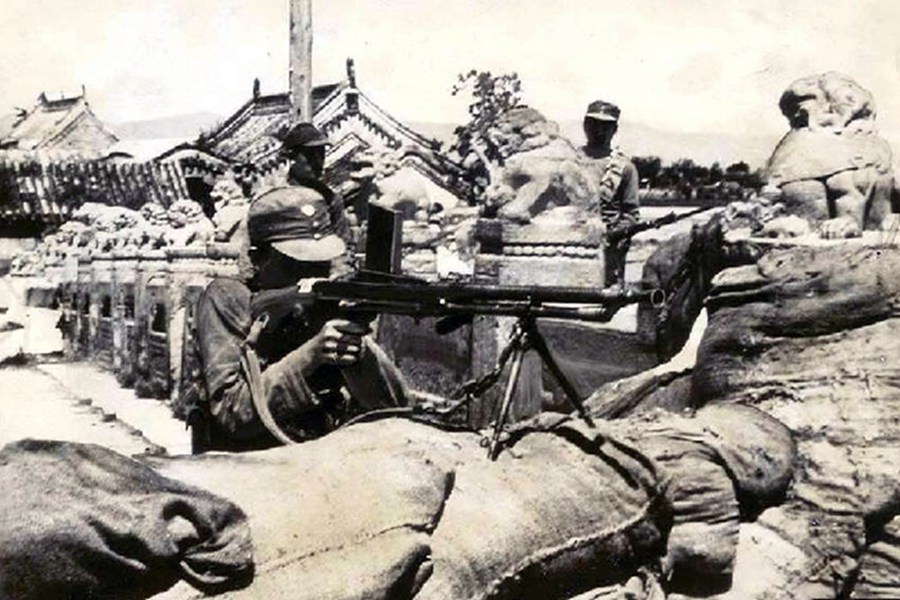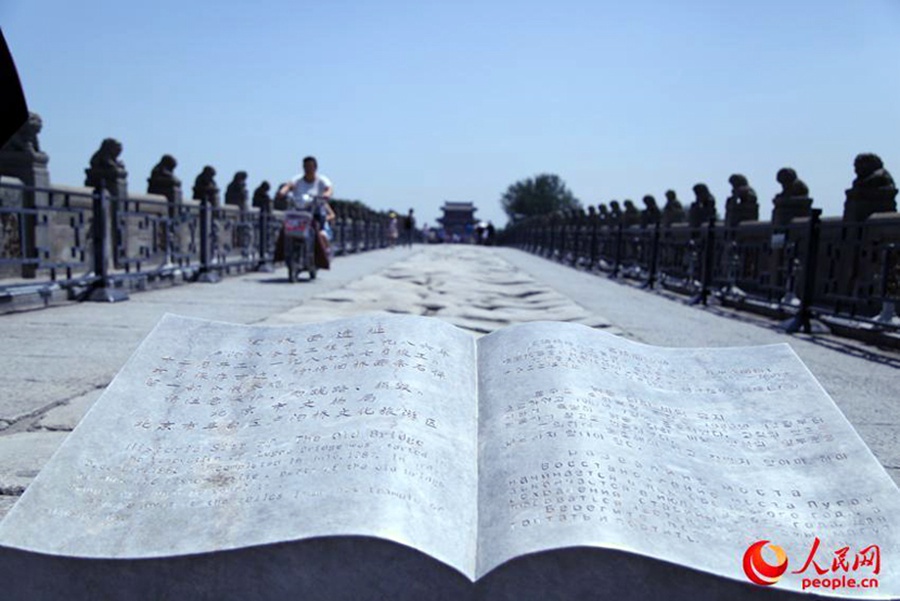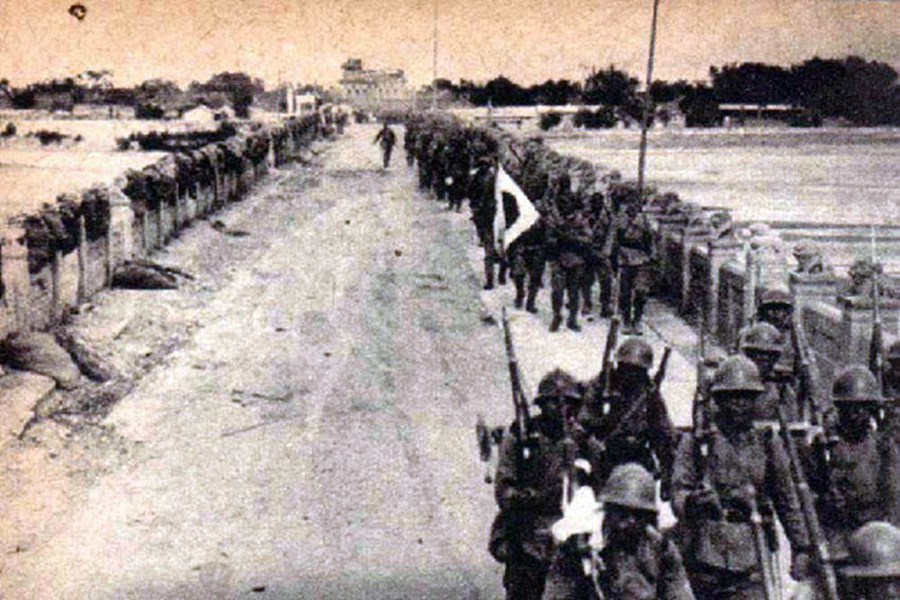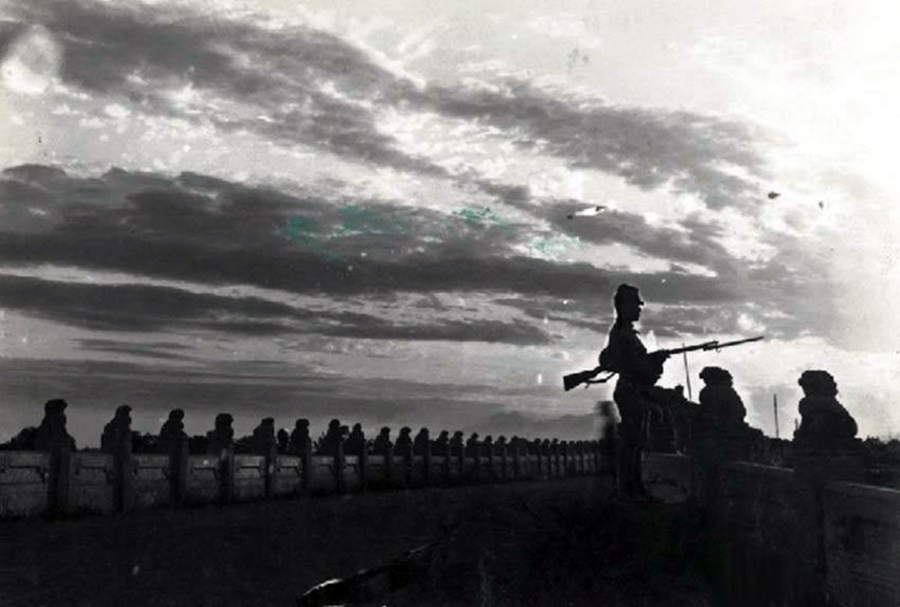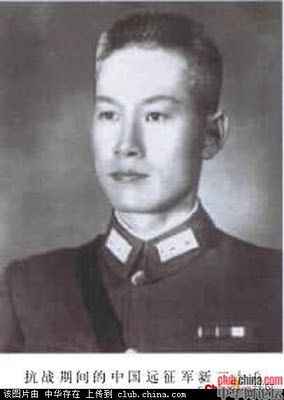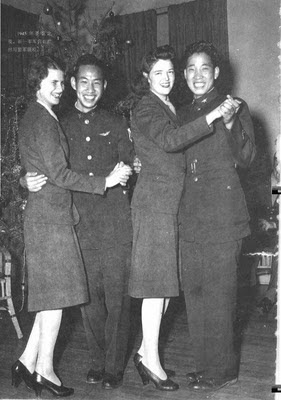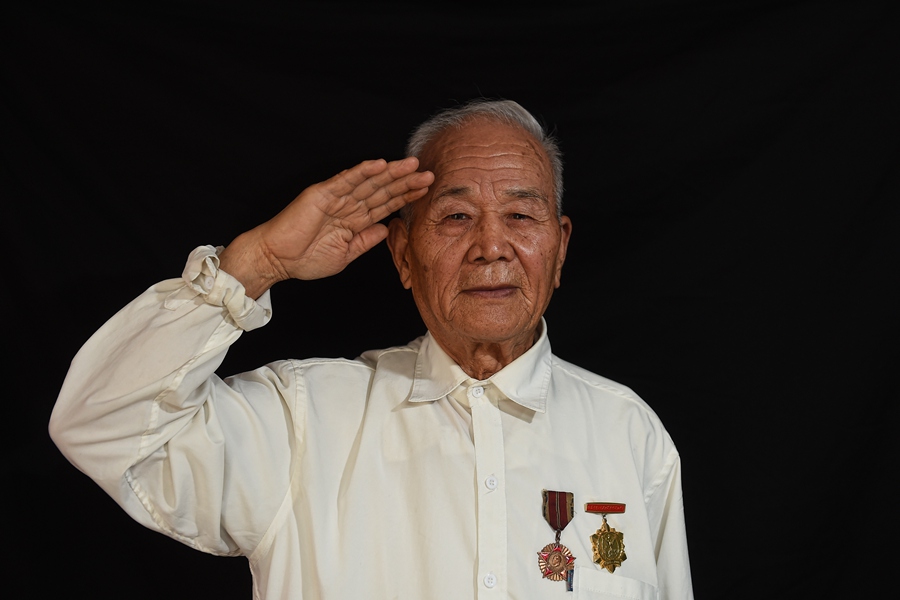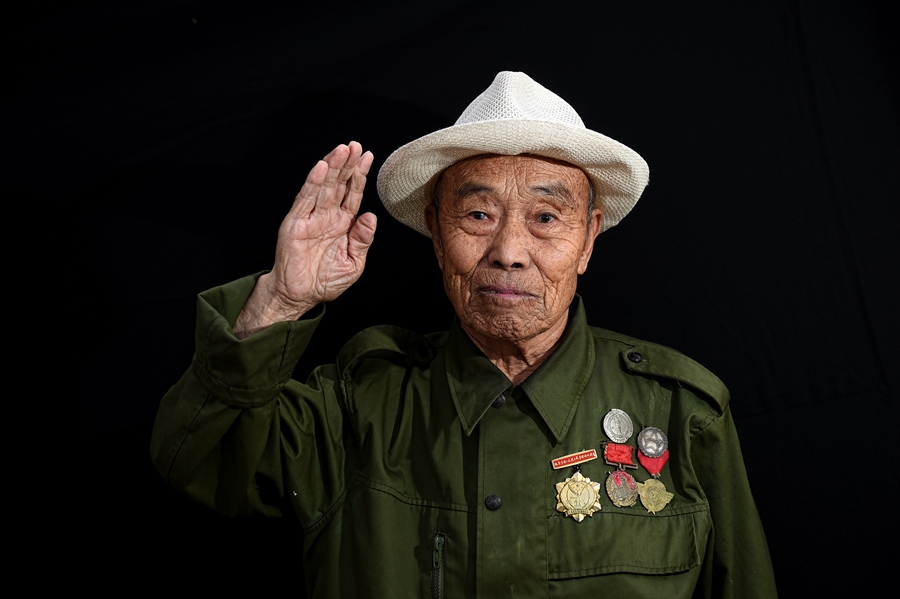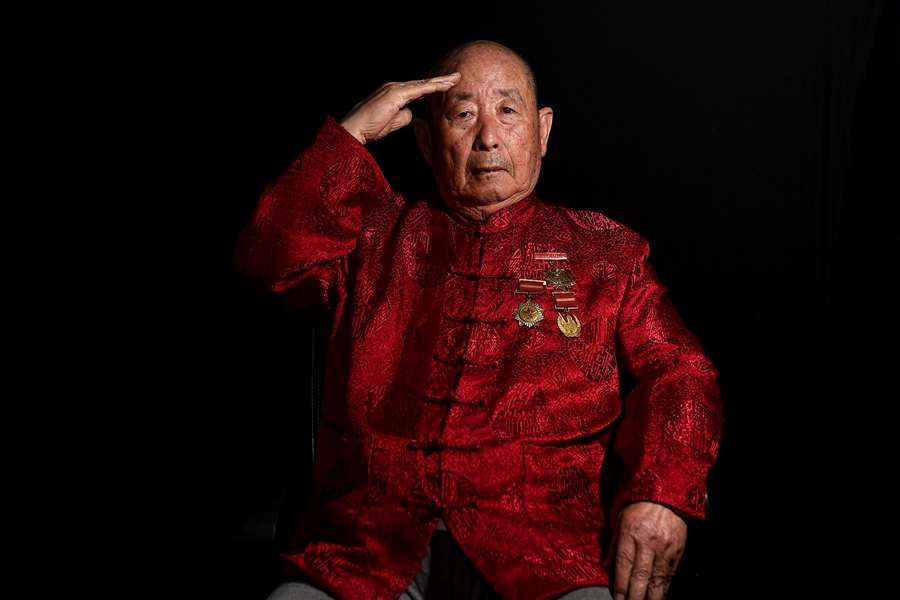TaiShang
ELITE MEMBER

- Joined
- Apr 30, 2014
- Messages
- 27,848
- Reaction score
- 70
- Country
- Location
Air-strikes carried out by Japanese army during WWII

File photo copy shows Japanese air service carrying out air-strikes to southwest China's Chongqing, June 16, 1940. The bombing of China is a major war crime committed by Japan during its invasion to China during WWII. Residential areas, business areas, schools and hospitals were the main targets of the attacks in which tens of thousands of civilians were killed. Historical data showed that nearly eight years of air-strikes by Japanese army air service, including those of large-scale, indiscriminate bombings from 1937 to 1943, left at least 762,183 people dead or injured in China. (Xinhua)

File photo shows people trying to put out fire after air-strikes carried out by Japanese army in southwest China's Chongqing, June 7, 1941. The bombing of China is a major war crime committed by Japan during its invasion to China during WWII. Residential areas, business areas, schools and hospitals were the main targets of the attacks in which tens of thousands of civilians were killed. Historical data showed that nearly eight years of air-strikes by Japanese army air service, including those of large-scale, indiscriminate bombings from 1937 to 1943, left at least 762,183 people dead or injured in China. (Xinhua)
[Picture not included, as per forum rules.]
File photo copy shows civilians dying of asphyxia while seeking shelter in a tunnel from air-strikes carried out by Japanese army in southwest China's Chongqing, June 5, 1941. The bombing of China is a major war crime committed by Japan during its invasion to China during WWII. Residential areas, business areas, schools and hospitals were the main targets of the attacks in which tens of thousands of civilians were killed. Historical data showed that nearly eight years of air-strikes by Japanese army air service, including those of large-scale, indiscriminate bombings from 1937 to 1943, left at least 762,183 people dead or injured in China. (Xinhua)

File photo shows the ruins of a residential area after air-strikes carried out by Japanese army in Hanyang, central China's Hubei Province, April 29, 1938. The bombing of China is a major war crime committed by Japan during its invasion to China during WWII. Residential areas, business areas, schools and hospitals were the main targets of the attacks in which tens of thousands of civilians were killed. Historical data showed that nearly eight years of air-strikes by Japanese army air service, including those of large-scale, indiscriminate bombings from 1937 to 1943, left at least 762,183 people dead or injured in China. (Xinhua)
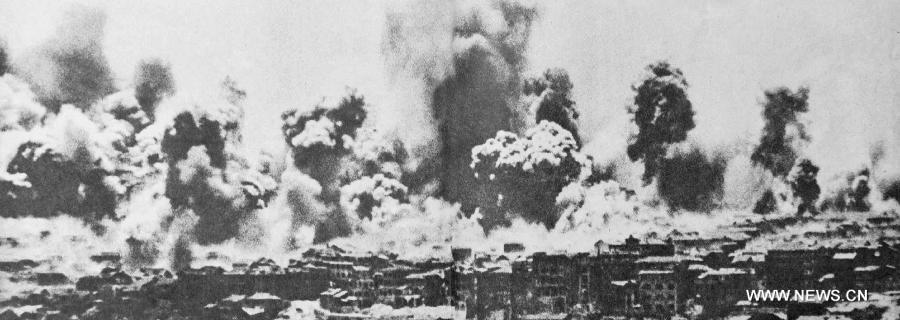
File photo copy shows the scene of air-strikes carried out by Japanese army in southwest China's Chongqing, in September, 1940. The bombing of China is a major war crime committed by Japan during its invasion to China during WWII. Residential areas, business areas, schools and hospitals were the main targets of the attacks in which tens of thousands of civilians were killed. Historical data showed that nearly eight years of air-strikes by Japanese army air service, including those of large-scale, indiscriminate bombings from 1937 to 1943, left at least 762,183 people dead or injured in China. (Xinhua)

File photo shows Japanese bombers hovering over Chongqing in southwest China in October, 1940. The bombings of China is a major war crime committed by Japan during its invasion to China during WWII. Residential areas, business areas, schools and hospitals were the main targets of the attacks in which tens of thousands of civilians were killed. Historical data showed that nearly eight years of air-strikes by Japanese army air service, including those of large-scale, indiscriminate bombings from 1937 to 1943, left at least 762,183 people dead or injured in China. (Xinhua)
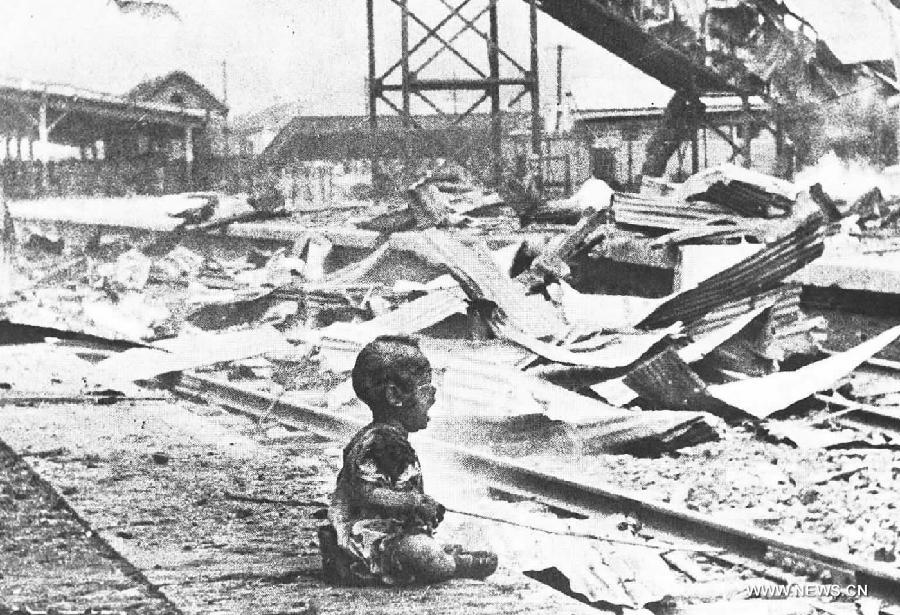
File photo shows a wounded child crying as his mother was killed in air-strikes carried out by Japanese army at Shanghai south railway station, Shanghai, east China, Aug. 28, 1937. The bombing of China is a major war crime committed by Japan during its invasion to China during WWII. Residential areas, business areas, schools and hospitals were the main targets of the attacks in which tens of thousands of civilians were killed. Historical data showed that nearly eight years of air-strikes by Japanese army air service, including those of large-scale, indiscriminate bombings from 1937 to 1943, left at least 762,183 people dead or injured in China. (Xinhua)
[Picture not included, as per forum rules.]
File photo shows civilians dying of asphyxia while seeking shelter in a dugout from air-strikes carried out by Japanese army in southwest China's Chongqing, June 28, 1940. The bombing of China is a major war crime committed by Japan during its invasion to China during WWII. Residential areas, business areas, schools and hospitals were the main targets of the attacks in which tens of thousands of civilians were killed. Historical data showed that nearly eight years of air-strikes by Japanese army air service, including those of large-scale, indiscriminate bombings from 1937 to 1943, left at least 762,183 people dead or injured in China. (Xinhua)
Air-strikes carried out by Japanese army during WWII - People's Daily Online

File photo copy shows Japanese air service carrying out air-strikes to southwest China's Chongqing, June 16, 1940. The bombing of China is a major war crime committed by Japan during its invasion to China during WWII. Residential areas, business areas, schools and hospitals were the main targets of the attacks in which tens of thousands of civilians were killed. Historical data showed that nearly eight years of air-strikes by Japanese army air service, including those of large-scale, indiscriminate bombings from 1937 to 1943, left at least 762,183 people dead or injured in China. (Xinhua)

File photo shows people trying to put out fire after air-strikes carried out by Japanese army in southwest China's Chongqing, June 7, 1941. The bombing of China is a major war crime committed by Japan during its invasion to China during WWII. Residential areas, business areas, schools and hospitals were the main targets of the attacks in which tens of thousands of civilians were killed. Historical data showed that nearly eight years of air-strikes by Japanese army air service, including those of large-scale, indiscriminate bombings from 1937 to 1943, left at least 762,183 people dead or injured in China. (Xinhua)
[Picture not included, as per forum rules.]
File photo copy shows civilians dying of asphyxia while seeking shelter in a tunnel from air-strikes carried out by Japanese army in southwest China's Chongqing, June 5, 1941. The bombing of China is a major war crime committed by Japan during its invasion to China during WWII. Residential areas, business areas, schools and hospitals were the main targets of the attacks in which tens of thousands of civilians were killed. Historical data showed that nearly eight years of air-strikes by Japanese army air service, including those of large-scale, indiscriminate bombings from 1937 to 1943, left at least 762,183 people dead or injured in China. (Xinhua)

File photo shows the ruins of a residential area after air-strikes carried out by Japanese army in Hanyang, central China's Hubei Province, April 29, 1938. The bombing of China is a major war crime committed by Japan during its invasion to China during WWII. Residential areas, business areas, schools and hospitals were the main targets of the attacks in which tens of thousands of civilians were killed. Historical data showed that nearly eight years of air-strikes by Japanese army air service, including those of large-scale, indiscriminate bombings from 1937 to 1943, left at least 762,183 people dead or injured in China. (Xinhua)

File photo copy shows the scene of air-strikes carried out by Japanese army in southwest China's Chongqing, in September, 1940. The bombing of China is a major war crime committed by Japan during its invasion to China during WWII. Residential areas, business areas, schools and hospitals were the main targets of the attacks in which tens of thousands of civilians were killed. Historical data showed that nearly eight years of air-strikes by Japanese army air service, including those of large-scale, indiscriminate bombings from 1937 to 1943, left at least 762,183 people dead or injured in China. (Xinhua)

File photo shows Japanese bombers hovering over Chongqing in southwest China in October, 1940. The bombings of China is a major war crime committed by Japan during its invasion to China during WWII. Residential areas, business areas, schools and hospitals were the main targets of the attacks in which tens of thousands of civilians were killed. Historical data showed that nearly eight years of air-strikes by Japanese army air service, including those of large-scale, indiscriminate bombings from 1937 to 1943, left at least 762,183 people dead or injured in China. (Xinhua)

File photo shows a wounded child crying as his mother was killed in air-strikes carried out by Japanese army at Shanghai south railway station, Shanghai, east China, Aug. 28, 1937. The bombing of China is a major war crime committed by Japan during its invasion to China during WWII. Residential areas, business areas, schools and hospitals were the main targets of the attacks in which tens of thousands of civilians were killed. Historical data showed that nearly eight years of air-strikes by Japanese army air service, including those of large-scale, indiscriminate bombings from 1937 to 1943, left at least 762,183 people dead or injured in China. (Xinhua)
[Picture not included, as per forum rules.]
File photo shows civilians dying of asphyxia while seeking shelter in a dugout from air-strikes carried out by Japanese army in southwest China's Chongqing, June 28, 1940. The bombing of China is a major war crime committed by Japan during its invasion to China during WWII. Residential areas, business areas, schools and hospitals were the main targets of the attacks in which tens of thousands of civilians were killed. Historical data showed that nearly eight years of air-strikes by Japanese army air service, including those of large-scale, indiscriminate bombings from 1937 to 1943, left at least 762,183 people dead or injured in China. (Xinhua)
Air-strikes carried out by Japanese army during WWII - People's Daily Online
- @Shotgunner51 , @powastick , @Keel , @Chinese-Dragon , @Yizhi , @AndrewJin , @tranquilium ,@Raphael , @Beidou2020 , @opruh , @S10 , @IR-TR , @cnleio , @cirr , et al



